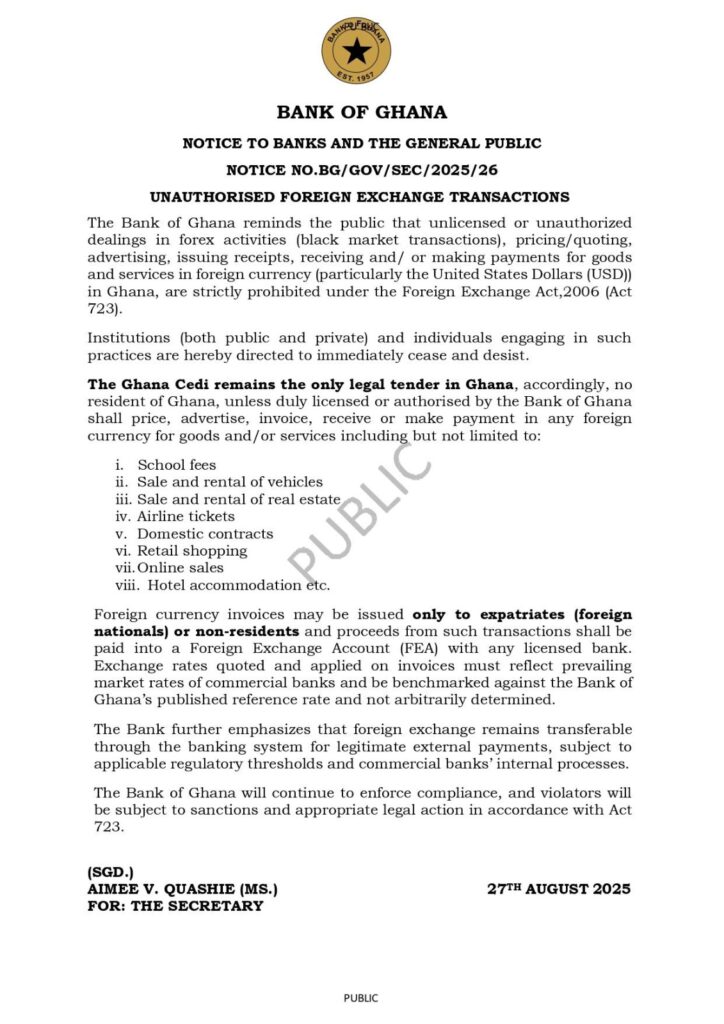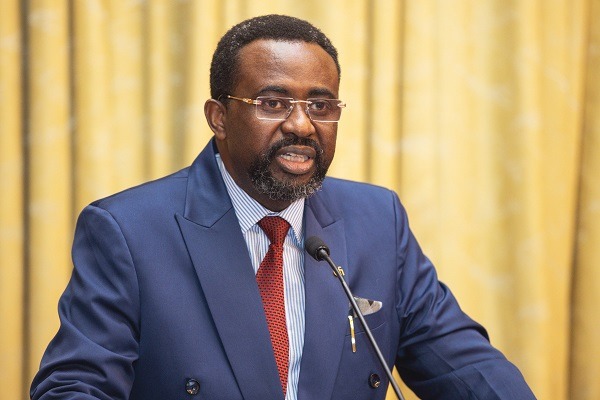According to Dr. Johnson Asiama, governor of the Bank of Ghana (BoG), the impact of black-market activities in Ghana might be considerably diminished with the correct measures.
During the 125th Monetary Policy Committee (MPC) press conference on July 30, Dr. Asiama responded to a question about whether black market practices are illegal or have just become accepted by the public by explaining that they are a small part of the foreign exchange market that usually deals with small transactions and minor currency exchanges.
Not only is it common throughout the sub-region, but it has been around for a while. He stated Ghana has the interbank market and licensed Forex bureaux in addition to the black market.
He went on to say that, in terms of both volume and scale, the interbank market is the hub of foreign exchange operations.
“The forex bureaux and black market serve peripheral needs. However, what we observe is that during periods of macroeconomic instability, black market activity tends to intensify. At present, we are receiving reports of increased activity, and we are actively monitoring the situation. In response, we have already issued a Notice aimed at improving foreign exchange supply and inflows. Additional measures are being implemented, and we expect these to contribute to greater market stability,” he stated.
“It is important to note that while we may not be able to eliminate black market operations entirely, especially those conducted informally or in private settings, they should remain at the margins of economic activity. With the right interventions, we believe their influence can be significantly reduced. Let me emphasise that black market operations are illegal. These operators are not licensed to trade in foreign currency. Only authorised Forex bureaux are permitted to engage in such transactions. While the black market may persist informally, it remains outside the bounds of legal and regulated financial activity.”
The Bank of Ghana emphasized in a later notification that the Ghana cedi is still the only legal tender and warned organizations and people against charging or accepting payments in foreign currencies for products and services in Ghana.
On Wednesday, August 27, 2025, the central bank sent out a letter reminding the public that it is against the Foreign Exchange Act, 2006 (Act 723) for any individual or organization to conduct foreign exchange operations without authorization.
Black market transactions, pricing, invoicing, and advertising in foreign currencies—especially the US dollar—are examples of these.
According to the notice, which was signed by the Bank’s secretary, Mrs. Aimee V. Quashie, “the Ghana cedi remains the only legal tender in Ghana.”
It further said that no Ghanaian citizen may price, promote, invoice, or accept payment in any foreign currency unless properly licensed or authorized by the Bank of Ghana.
School fees, car sales and rentals, real estate sales and rentals, airline tickets, domestic contracts, retail purchases, internet sales, and hotel accommodations are all covered by the order.
Only non-residents or expatriates may receive foreign currency invoices, according to the BoG, and the money received must be deposited into a Foreign Exchange Account (FEA) with a bank that has been granted permission.
The Bank went on to say that the currency rates on these invoices had to be standardised against its published reference rate and represent the current market rates of commercial banks.
Subject to regulatory restrictions and protocols, the Bank of Ghana stated that foreign exchange transactions for valid external payments are still allowed through the banking system.
Enforcement will continue, it said, and anyone or any institution found to be in violation would be subject to Act 723 penalties and punishment. 






